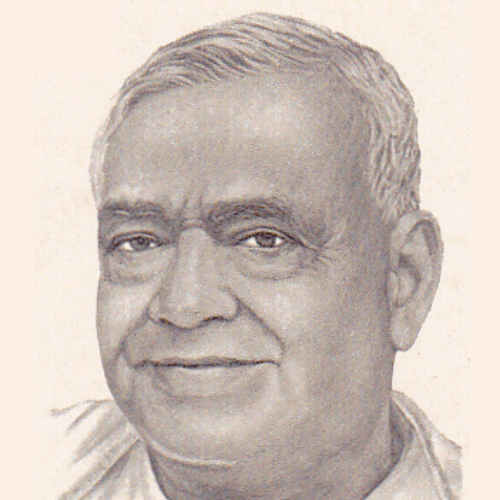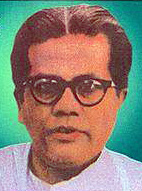Early Life and Education
Tarun Ram Phookan, widely respected as “Deshbhakta” (Dexbhakta) in Assam, was born on January 22, 1877, in Guwahati, Kamrup District. From an early age, he exhibited remarkable intelligence and dedication to his studies. He received his early education at Cotton Collegiate School in Guwahati before moving on to Presidency College in Calcutta. His thirst for knowledge and ambition led him to London, where he pursued law at Inner Temple, ultimately joining the Bar. Upon returning to India, he quickly established himself as a distinguished lawyer and later took up the role of Lecturer at Earle Law College, Guwahati.
His Role in Assam’s Political Awakening
During the early 20th century, political movements in India were gaining momentum, and Tarun Ram Phookan played a crucial role in shaping Assam’s political landscape. He was an active member of the Assam Association, which was the only political organization in the region until 1920. Recognizing the need for a stronger political platform, Phookan was instrumental in the formation of the Assam Branch of the Indian National Congress in 1921. His leadership and vision earned him the position of its first President.
Contribution to the Non-Cooperation Movement
Phookan was a firm believer in Mahatma Gandhi’s principles and actively participated in the Non-Cooperation Movement. He traveled extensively across Assam, spreading the message of independence and inspiring people to join the struggle against British rule. His dedication to the cause led to his arrest in 1921, and he was sentenced to one year of rigorous imprisonment. Despite the hardships, he remained steadfast in his commitment to India’s freedom struggle.
Leadership in National and Regional Politics
In 1926, Phookan was appointed Chairman of the Reception Committee for the Pandu Session of the Indian National Congress. His influence extended beyond politics, as he also served as Chairman of the Municipal Board and Local Board of Guwahati. In these roles, he spearheaded several initiatives aimed at improving the lives of underprivileged communities. His efforts in social reform set him apart as a leader with a deep sense of responsibility toward society.
Social Contributions and Philanthropy
Apart from his political engagements, Phookan was deeply involved in social work. He established a Leper Asylum in Guwahati, providing care and support for those affected by leprosy. His humanitarian efforts reflected his strong belief in social justice and upliftment. His commitment to literature and education was equally notable, as he became the President of the Assam Sahitya Sabha in 1927 at its Goalpara Session. Additionally, in 1928, he led the Assam Chhatra Sammelan, further emphasizing his role in shaping the intellectual and cultural fabric of Assam.
Formation of the Assam Provincial Congress Committee (APCC)
With the growing influence of the Indian National Congress in Assam, the Assam Provincial Congress Committee (APCC) was established in 1921, with its headquarters in Guwahati. Under the leadership of Phookan and Kuladhar Chaliha, the committee played a pivotal role in mobilizing political activism in the state. The restructured APCC elected notable leaders such as Gopinath Bordoloi, Bimala Prasad Chaliha, Chandranath Sarmah, Krishna Nath Sarmah, and Kanak Chandra Sarmah as members of the All India Congress Committee (AICC).
Invitation to Mahatma Gandhi
Recognizing the need to strengthen the Non-Cooperation Movement in Assam, Phookan and his fellow leaders took a historic step by inviting Mahatma Gandhi to the state in 1921. Gandhi’s visit had a profound impact on the people of Assam, igniting a new wave of patriotism and determination among Congress workers. His presence further reinforced the principles of Swadeshi and self-reliance, encouraging the people to actively participate in the freedom struggle.
A Legacy of Leadership and Inspiration
Tarun Ram Phookan’s contributions went far beyond politics; his leadership, social work, and literary efforts left an enduring impact on Assam’s history. His ability to connect with the masses, combined with his vision for a self-sufficient and independent India, cemented his legacy as one of the most respected leaders of his time. His dedication to public service, political reforms, and social welfare continues to inspire generations.
Conclusion
Tarun Ram Phookan was more than just a political leader; he was a visionary who dedicated his life to the betterment of Assam and its people. His commitment to social justice, education, and political reform shaped the future of the state. Even today, his contributions serve as a guiding light for those striving to bring about positive change in society. His unwavering spirit and relentless efforts in India’s freedom struggle make him a true icon of Assam’s history. On July 28, 1939, he passed away, but his legacy remains deeply embedded in the hearts of the people.
FAQ’s:
Q 1. Who was Tarun Ram Phookan?
Tarun Ram Phookan was a freedom fighter, politician, and social reformer from Assam. He played a major role in India’s independence movement and was the first President of the Assam Branch of the Indian National Congress.
Q 2. Why was Tarun Ram Phookan called Deshbhakta?
He was given the title “Deshbhakta” (Patriot) because of his dedication to India’s freedom struggle. He actively participated in the Non-Cooperation Movement and inspired many people in Assam to join the fight against British rule.
Q 3. What was his contribution to the Non-Cooperation Movement?
He led the Non-Cooperation Movement in Assam by traveling across the state and encouraging people to resist British rule. His participation led to his arrest in 1921, and he was sentenced to one year of rigorous imprisonment.
Q 4. How did he contribute to Assam’s political development?
Before 1920, Assam had only one political organization, the Assam Association. He played a key role in forming the Assam Branch of the Indian National Congress in 1921 and became its first President, strengthening Assam’s role in national politics.
Q 5. What social work did Tarun Ram Phookan do?
He worked to uplift underprivileged communities, served as Chairman of the Municipal Board in Guwahati, and established a Leper Asylum to help people suffering from leprosy.
Q 6. Did Tarun Ram Phookan have any role in literature and education?
Yes, he was deeply involved in literary and educational activities. He served as the President of the Assam Sahitya Sabha in 1927 and also led the Assam Chhatra Sammelan in 1928 to promote education among students.
Q 7. What was his role in inviting Mahatma Gandhi to Assam?
He, along with other leaders, invited Mahatma Gandhi to Assam in 1921 to strengthen the Non-Cooperation Movement. Gandhi’s visit motivated Congress workers and the general public to support the independence movement.
Q 8. What were his contributions to the Assam Provincial Congress Committee (APCC)?
He was one of the key figures in forming the Assam Provincial Congress Committee (APCC) in 1921. Under his leadership, the committee took major steps in mobilizing political activism in Assam.
Q 9. What leadership positions did he hold?
He served as the first President of the Assam Congress, Chairman of the Reception Committee for the Indian National Congress Session in 1926, and also held positions in local governing bodies like the Municipal Board and Local Board of Guwahati.
Q 10. When did Tarun Ram Phookan pass away, and what is his legacy?
He passed away on July 28, 1939. His legacy lives on as one of Assam’s most respected leaders who fought for India’s independence, promoted education, and worked for the welfare of society.












